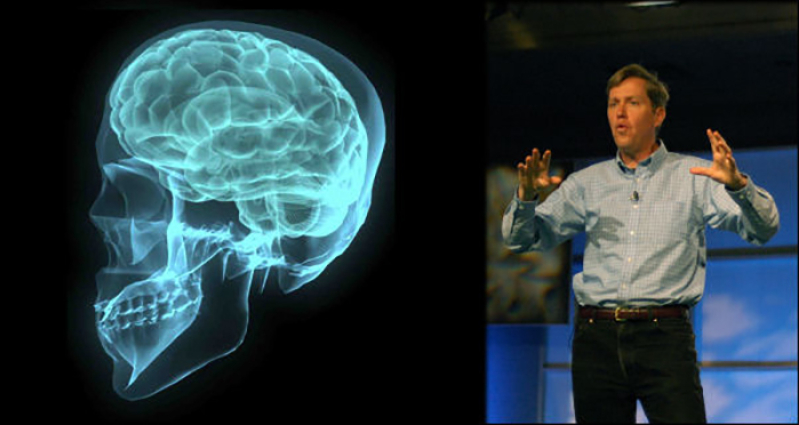
The man who produced the first Palm Pilot and went on to found Numenta told a Silicon Valley gathering last week that he believes his company will successfully produce the first computers which can think and reason on their own. "We're going to finish this off in less than five years," declared Jeff Hawkins, co-founder of Numenta.
Hawkins, who founded Palm Computing in 1992 and has been leading Numenta for the past nine years, delivered his prediction at the SVForum iHuman Conference in San Mateo, California last Thursday. Widely regarded as one of the country's foremost experts in the biological structure of the human brain, Hawkins has been working on machine learning technology that would give computers the ability to gather large amounts of data and use it to become even smarter as time goes on.
"I'm trying to reverse engineer the neocortex," explained Hawkins, referring to the area of the brain where spatial reasoning and conscious thought reside.
The implications of Hawkins' work and the potential new technology offered by Numenta are significant. Today's computers are largely programmed by humans in much the same way that they were 30 years ago. If machines could learn on their own without the vast amounts of time and effort to program them, then it would dramatically revolutionize how technology is created today.
Earlier this year, Numenta announced the first commercial application of its research when it revealed that their Grok IT for Analytics platform was now running on Amazon Web Services. Grok, which is named after the term for "understanding" in Robert Heinlein's 1961 science fiction novel Stranger in a Strange Land, is being used by Amazon to detect pattern changes in the operation of their servers.
"We can go beyond what biology has done," said Hawkins. "I believe the quickest way to get to intelligent machines is the path we're taking."
Hawkins' work is not without competition or controversy. Google and Facebook are rumored to be working on machine learning technology, a hint of which was revealed nearly a year ago when the MIT Technology Review reported that Google had paid $400 million to acquire DeepMind Technologies, a London-based artificial intelligence startup.
In addition, one of the early co-founders of Numenta, Dileep George, left the company in 2010 to found his own firm called Vicarious. In a sign of the serious interest surrounding the machine learning field, Vicarious is financially backed by Tesla's Elon Musk, Facebook's Mark Zuckerberg, and the venture capitalist/actor Ashton Kutcher.
The length of time it has taken Numenta to deliver on its stated belief that "a computing approach based on biological learning principles will make possible a new generation of capabilities not possible with today's programmed computers" has generated criticism that Hawkins is trying to accomplish the impossible. This was further reinforced by a lengthy story published in The New Yorker last year.
There is also growing concern that legitimate machine self-learning could unleash a dangerous world where computers without human control would replicate the good and the bad. Hawkins addressed this directly last week at the iHuman Conference when he said "a lot of smart people think this is really dangerous, but I think they are wrong."
Hawkins also said that people should be more worried about the ability for humans to self-replicate viruses on computer systems today. "I'm far more worried about people in some lab making a new virus than machine intelligence," said Numenta's co-founder.
Hawkins has always been known for taking an independent course and he's been recognized for being at the forefront of new technology breakthroughs. This was evident when he worked at GRiD Systems in the late 1980s where he helped develop the first tablet computer, and when he founded Palm Computing whose handheld products ushered in the modern age of mobile portable devices.
If Hawkins' prediction that Numenta's technology will become fully realized by 2020 becomes true, then it will be a testament to patience and tenacity in an industry where 15 years to being a new product to market is practically an eternity. It will be that long before a computer realizes it can think for itself.







